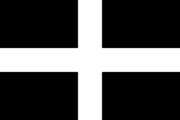One way English speakers play with English is by making into Pig Latin. This involves move the first sound of each word to the end and adding “ay”; for example Pig Latin becomes Ig-pay atin-lay. If a word starts with a vowel you might add hey, way or yay to the end. This creates a sort of pseudolanguage that sounds vaguely like Latin and can be used as a secret code, or just for fun.
I found an article today about language games like this in other languages.
I knew about Pig Latin, though had never played with, and about Verlan in French, but not about the equivalents in other languages. Have you played any of these games? Do you know of any others?
